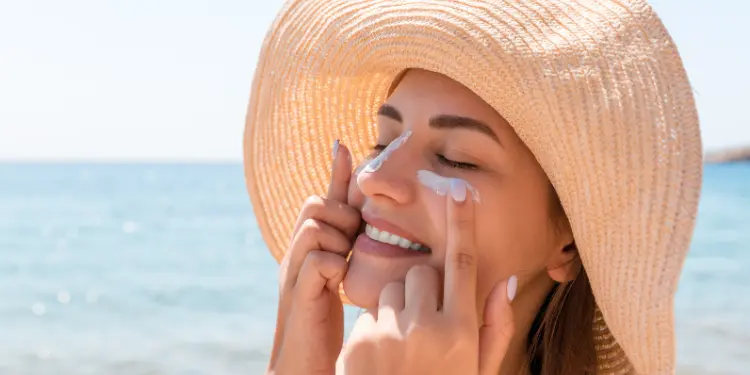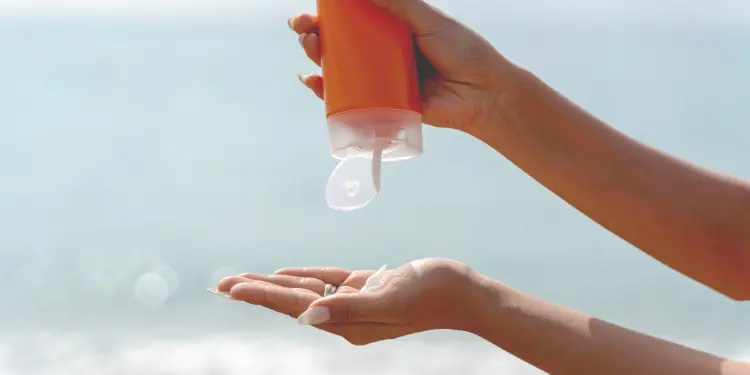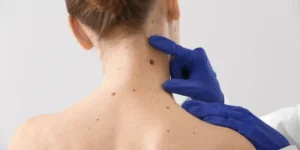Here at the Skin Cancer Hub our Practitioners recommend our patients apply sunscreen every day.
“Applying sunscreen every day is the most important thing you can do to keep your skin looking healthy and prevent skin cancer,” says Dr. Sara Perkins, assistant professor of dermatology at the Yale School of Medicine. “Ultraviolet radiation can lead to hyperpigmentation, fine lines, and wrinkles, not to mention basal and squamous cell skin cancer and melanoma.”
Sunscreen is a no-brainer if you work outdoors or live in a warm, sunny city. But even if you spend most of your time indoors or live somewhere that’s often overcast, it’s still important. “I think most people underestimate the amount of sun exposure they get each day through [things like] windows, running errands, walking the dog, and playing tennis,” she says. “We’re also still getting exposure on cloudy days and in colder temperatures.”

Apply sunscreen of at least 30 SPF to your face, neck, and any area of your skin that’s exposed to the sun, including places you wouldn’t normally consider, like your ears and the backs of your hands, says Dr. Rosanne Paul, assistant professor of dermatology at Case Western Reserve University in Cleveland. She adds that most people underestimate the amount of sunscreen they need—in general, the amount you’d fit on your fingertip is the amount you should use to cover the surface area of your palm. (Your face is probably the size of two to three palms, so you’d need two to three fingertip’s worth of sunscreen.) Another way of looking at it, she says, is that a shot glass full of sunscreen would typically be the right amount if you’re outside in a bathing suit.
There are both mineral and chemical sunscreens. Mineral sunscreens (which contain ingredients like zinc and titanium) create a barrier between the skin and the sun, bouncing UV light off of the skin. Chemical sunscreens (which include ingredients like avobenzone) absorb it like a sponge, says Dr. Heather Goff, director of cosmetic dermatology and associate professor of dermatology at UT Southwestern Medical Center in Dallas. Both are effective, but most experts recommend mineral-based sunscreens since they’re gentler on the skin, especially for people with conditions like rosacea and eczema. (Plus, chemical sunscreens can be harmful to the ocean’s coral reefs.) Goff adds that you should select a sunscreen that says broad-spectrum, as this means it protects against both UVA and UVB rays.
Some research suggests the blue light that’s emitted from our screens can cause hyperpigmentation of the skin. If you have a lot of dark spots or you spend a lot of time in front of screens, consider using a tinted sunscreen, Paul says, as the ferric oxide in tinted sunscreen is protective against hyperpigmentation, as well as the visible light emitted from our screens.
Friedlander Serrano, Time Magazine. AUGUST 13, 2024





